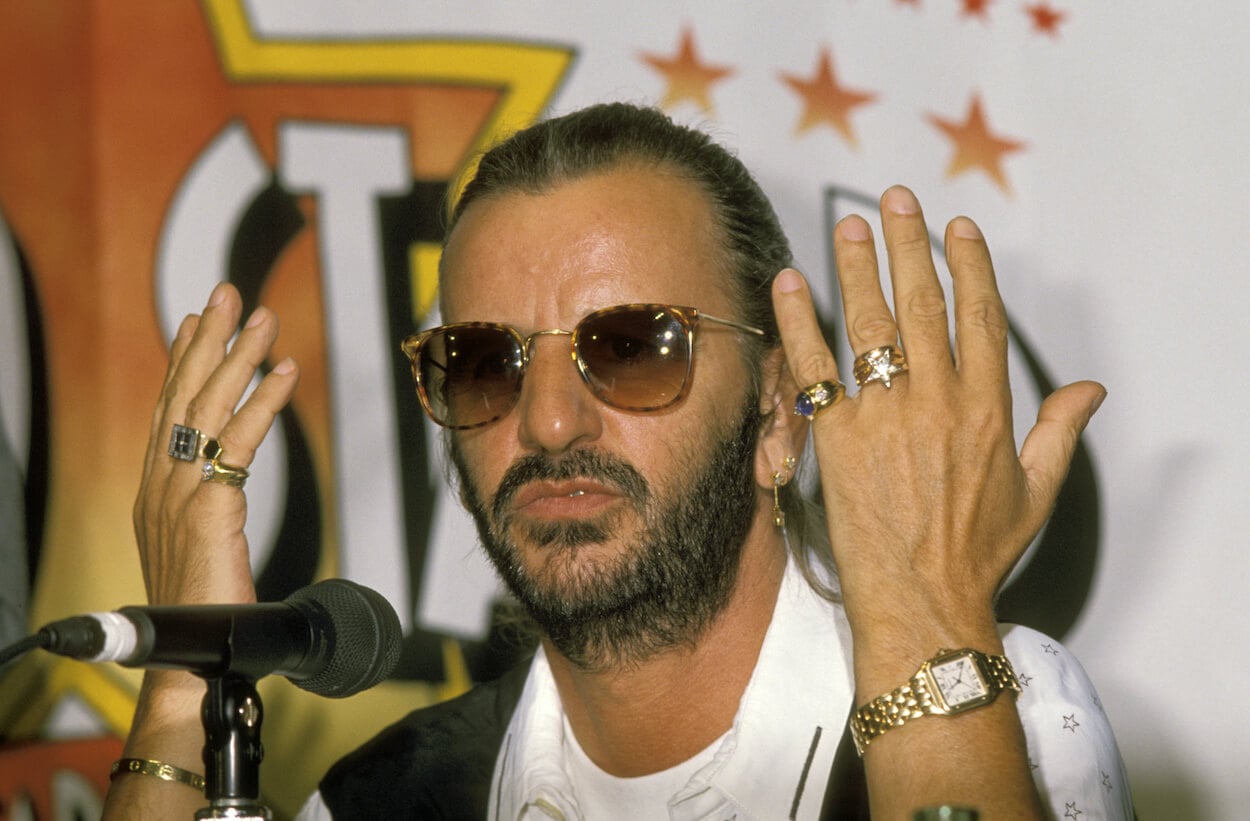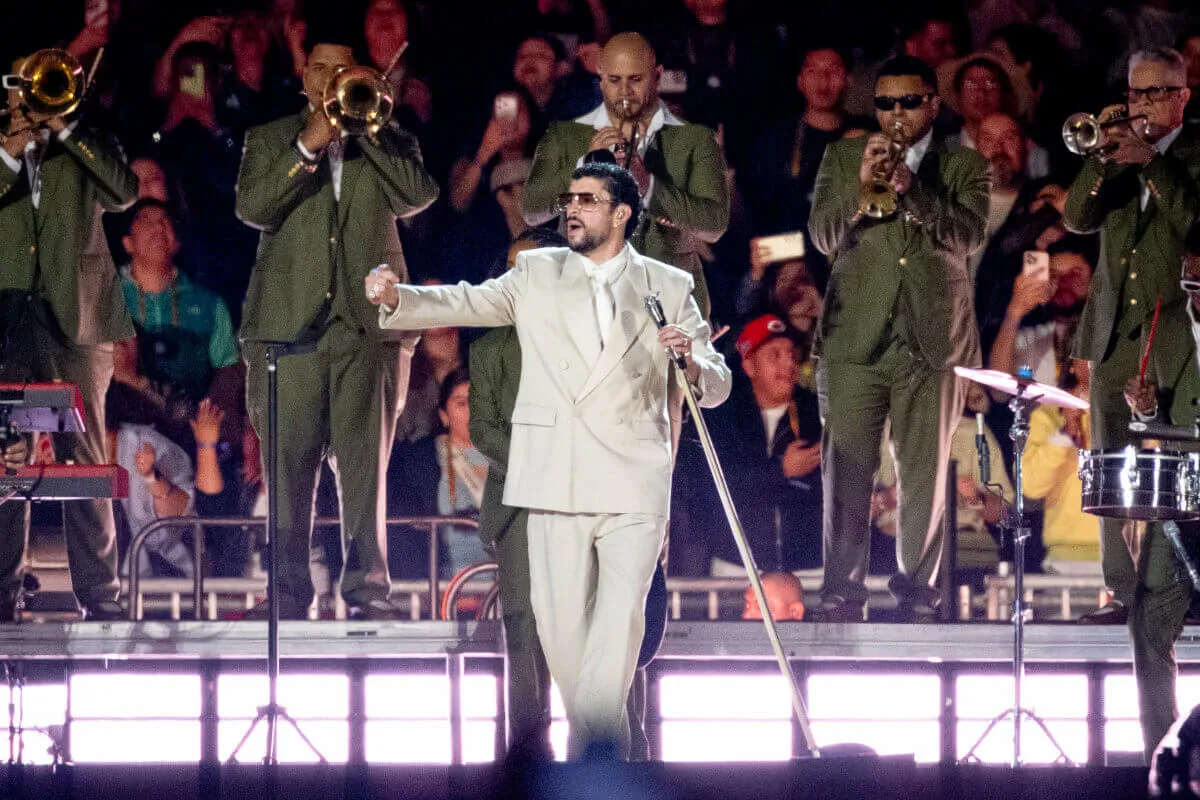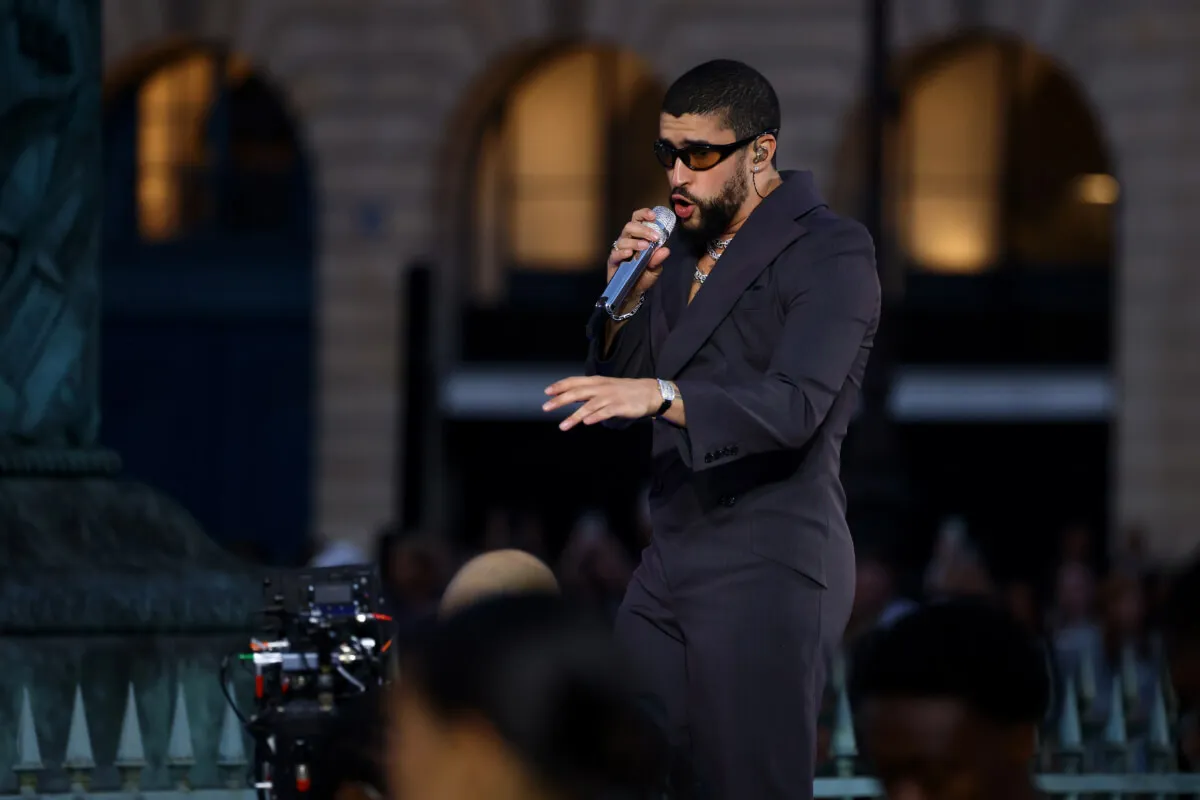
Ringo Starr Hated The Beatles’ Drug Use Being Covered By the Media but Not Because It Made Him Look Bad
Ringo Starr needed time to find his voice in The Beatles, but he was no stranger to using it. He complained about being ignored during the making of Rubber Soul. His bandmates rewarded him with a larger role on the record. The drummer used his voice again later. Ringo hated The Beatles’ drug use being covered by the press (though not because it made him look bad), and he said something about it.

Ringo Starr said drugs helped influence the Beatles’ songs later in their career
Not counting the amphetamines German club promoters fed them to keep them going during marathon performances, The Beatles first got high with Bob Dylan in a New York hotel room in 1964. The Fab Four were hardly strangers to other illegal substances for the rest of their career.
All of them tried LSD. John Lennon developed a heroin addiction. Paul McCartney used cocaine for a time but stopped when he realized he hated the side effects. George Harrison and his wife Pattie Boyd had their house raided by police searching for drugs.
Ringo said drugs accelerated the pace at which The Beatles changed their sound. They went from writing sweet pop songs to experimenting with tape loops, backmasking, orchestras, and eastern instruments.
It was hardly a secret the fab four used drugs in the 1960s, and the ever-present press relayed that info to the public. Ringo hated that the media covered the Beatles’ drug use, but not because it made him look bad.
Ringo hated that the media covered The Beatles’ drug use because it gave people incentive to try drugs
The Beatles weren’t the only musicians using drugs, of course. The police arrested Rolling Stones singer Mick Jagger and his girlfriend, Marianne Faithful, in 1967 and raided Ronnie Wood’s house looking for Keith Richards’ drug stash when he lived at Wood’s house.
Each time the Fab Four discussed using drugs led to a news story. Every arrest brought media attention. Ringo hated that the press covered the Beatles’ drug use because he believed it influenced people to follow suit, writes Ringo Starr: Straight Man or Joker? author Alan Clayson:
“The news is all over everywhere, so they’re spreading it. They think it’s great if the police raid a place — but fifty million people have read about it again, and a couple of thousand will say, ‘I’ll try drugs.’”
Ringo Starr
Ringo and his bandmates were technically breaking the law with their drug use in the 1960s, and running afoul of the law was noteworthy. Yet the onslaught of coverage bothered the drummer. Some misinformed readers very likely could have assumed that if taking drugs made The Beatles so creative, then it could do the same for them. Thanks to the press, some unassuming fans might be tempted by the glamor of The Beatles’ drug use without considering the consequences, and Ringo hated that.
The drummer overcame addiction after the Fab Four broke up
The Beatles’ breakup wasn’t easy for Ringo. He lost the three people he routinely called his brothers as the Fab Four fractured in a storm of ego clashes and in-fighting. The drummer reached unprecedented heights with the band, and it was all gone by 1970. He said he was angry for 20 years after the split.
His solo career started to lose steam by the mid-1970s, and Ringo filled his days by drinking. The drummer’s experiences with alcohol were clear to Paul and Linda McCartney, but they were afraid to talk to Ringo about them.
Thankfully for him and Beatles fans, Ringo embraced sobriety in 1988. He faced and conquered his fears of performing without alcohol during the first All-Starr Band tour in 1989. Ringo did it so well that he inspired his tourmate Dr. John to find sobriety, too.
Ringo Starr hated that the press covered The Beatles’ drug use because it might have given impressionable fans the wrong idea. Seeing how he survived years of addiction and faced the challenge of finding sobriety, it’s easy to see why glamorizing drug use bothered him so much.
How to get help: In the U.S., contact the Substance Abuse and Mental Health Services Administration helpline at 1-800-662-4357.


